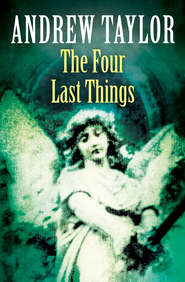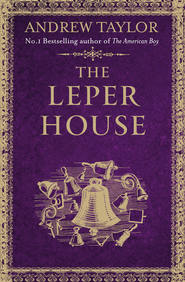По всем вопросам обращайтесь на: info@litportal.ru
(©) 2003-2024.
✖
Fallen Angel
Автор
Год написания книги
2019
Настройки чтения
Размер шрифта
Высота строк
Поля
His mother opened the envelope and took out a British passport. She flicked over the pages until she found the photograph. She pushed the passport across the table towards Eddie, pinning it open with grubby fingers.
Reluctantly he came into the room and peered at the photograph, which showed a thin-faced, short-haired woman he had never seen before.
‘So? Who is it?’
‘Are you blind?’ his mother shouted. ‘Look at the name, you fool.’
Eddie stooped, holding the glasses on the bridge of his nose. The name swam into focus.
Angela Mary Wharton.
Eddie’s memories of the next few hours were vivid but patchy. This was, he supposed later, a symptom of shock. He remembered slamming the front door of 29 Rosington Road, a thing he’d never done before, but after that there were missing links in the chain of events.
He must have walked to Chalk Farm underground station and taken the Northern Line to Tottenham Court Road. He could not remember whether he had changed on to the Central Line for Oxford Circus or simply walked the rest of the way. But he had a clear picture of himself standing just inside the main entrance of Liberty’s: the place was full of people and brightly coloured merchandise; a security guard stared curiously at him; he tried to find Angel, but she wasn’t there, and he felt despair creeping over him, a sense that everything worthwhile was over.
Suddenly she touched his shoulder. ‘Let’s go outside. I’ve got you a present.’
Taking his arm, which was something she had never done before, she urged him outside. There, standing on the pavement in Great Marlborough Street, she gave him a small Liberty’s bag.
‘Go on, open it.’ Angel was like a child, incapable of deferring pleasure. ‘I knew I had to get it for you as soon as I saw it.’
People flowed steadily past them like a stream around a rock. Inside the bag was a silk tie, blue with thin green stripes running diagonally across it. Eddie stroked the soft material, his eyes filling with tears as he tried to find the right words.
‘See,’ she said. ‘It picks out the blue in your eyes. It’s perfect.’
Everything except himself and Angel receded, as though rushing away – the black-and-white frontage of Liberty’s, the people eddying along the pavement, the snarling engines and the smell of fast food.
‘Put it on.’ Angel did not wait for him to respond but buttoned the collar of his shirt, which he was wearing without a tie. ‘That shirt will do perfectly.’ She turned up his collar, took the tie from his hand and put it round his neck. Deftly she tied the knot, making him feel like a child or even a doll. She stood back and looked assessingly at him. ‘Yes, perfect.’
‘Thank you. It’s wonderful.’
Angel looked at her watch. ‘We’re going to miss the film if we’re not careful.’
‘I’m sorry I’m late. My mother …’
‘What is it? Something’s happened.’
‘My mother’s been in your room.’
‘That’s nothing new.’
Eddie snatched at the diversion, a temporary refuge. ‘You knew?’
‘She pokes her nose in there most days. I leave things so I can tell. Now, what is it?’
He felt hot and embarrassed: he hoped she did not know that he too had sometimes been in there. ‘She found something in a tin box.’
Angel wrapped her hand around his arm and squeezed so hard that he yelped. She was pale under the make-up, and she pulled her lips back and the wrinkles appeared, just as they had done on Parliament Hill. ‘It was locked.’
‘She must have found the key. Or found one of her own that fitted. Or maybe for once it wasn’t locked. I don’t know.’ He stared miserably up at her. ‘She’s got the passport. She’s going to show it to your boss at the agency. And maybe the police.’
At this point there was another broken link in the memories. The next thing he knew they were deep in Soho, in Frith Street, and he was following Angel’s shining head down a flight of stairs to a basement restaurant whose sounds and smells rose up around him like a tide. They sat at a table in an alcove, an island of stillness. A single candle stood between them in a wax-coated bottle. Eddie could not recall what they ate, but he remembered that Angel bought first one bottle of red wine and then another.
‘Drink up,’ she told him. ‘Come along, you need it. You’ve had a shock.’
The wine tasted harsh and at first he found it hard to swallow. As glass succeeded glass, however, it became easier and easier.
‘Can you keep a secret?’ Angel asked when they had finished the starter. ‘No one else knows the truth, but I want to tell you. Can I trust you?’
‘Yes.’ Angel, you can always trust me.
She stared into the candle flame. ‘If my mother had lived, everything would have been different.’
Her mother, she told Eddie, had died when she was young, and her father had married again, to a wife who hated Angel.
‘She was jealous, of course. Before she came along, my father and I had been very close. But she soon changed that. She made him hate me. Not just him, either – she worked on everyone we knew. In the end they all turned against me.’
Desperate to get away, Angel found work as an au pair, at first in Saudi Arabia and later in South America, mainly in Argentina. Then she became a nanny. Her employers had been delighted with her: she had stayed with one family for over five years. Finally, she had been overcome by a desire to come back to England.
‘It gets to you sometimes: wanting to go back to your roots, to your past. Then I met Angie Wharton. She was English, but she had been born in Argentina. Her parents emigrated there after the war. Angie wanted to come home, too. Not that she’d ever been here before.’
‘How could this be her home?’ asked Eddie owlishly. ‘If she hadn’t been here, I mean?’
‘Home is where the heart is, Eddie. Anyway, Angie was a nursery nurse – she’d trained in the States before her parents died. We thought we’d travel home together, share a flat and so on. It’s thanks to Angie that I know Mrs Hawley-Minton. Poor darling Angie.’
‘What happened to her?’
‘It was terribly sad.’ Angel’s eyes shone, and an orange candle flame flickered in each pupil. ‘It hurts to talk about it.’ She turned away and dabbed her eyes with a napkin.
‘I’m sorry,’ Eddie said, drunk enough to feel that he was somehow responsible for her sorrow. ‘Let’s talk about something else.’
‘No. One can’t hide away from things. It was one of those awful, stupid tragedies. Our first night in London. We’d only been here a few hours. Oh, it was my fault. I shall always blame myself. You see, I knew that Angie was – well, to be blunt, she was a lovely person but she had a weakness for alcohol.’ Angel topped up Eddie’s glass. ‘Not like this – a glass or two over a meal. She’d go on binges and wake up the next day not knowing what had happened, where she’d been. It was terrible.’
Eddie pushed away his plate. ‘What was?’
‘It was on our first evening here,’ Angel said, her eyes huge over the rim of the wine glass. ‘Life can be so unfair sometimes. She’d been drinking on the plane. One after the other. When we got here, we found a hotel in Earl’s Court and then we had a meal. Wine with the meal, of course. And then she wanted to carry on. “I want to celebrate,” she kept saying. “I’ve come home.” Poor Angie. I just couldn’t cope. I was fagged out. So I went back to our room and went to bed. Next thing I knew it was morning and the manager was knocking on the door.’
The waiter brought their main course and showed a disposition to linger and chat.
‘That’ll be all, thank you,’ said Angel haughtily. When she and Eddie were alone again she went on, ‘I hate men like that. So pushy. Where was I?’
‘The manager knocking on the door.’
The irritation faded from Angel’s face. ‘He had a policewoman with him. Apparently Angie had gone up to the West End. Drinking steadily, of course. Somehow she managed to fall under a bus in Shaftesbury Avenue. There was a whole crowd coming out of a theatre, and people coming out of a pub, and a lot of pushing and shoving.’ Angel sighed. ‘She was killed outright.’
‘How awful.’ Eddie hesitated and then, feeling more was required, added, ‘For you as much as her.’
‘It’s always harder for those who are left behind. No one else grieved for her. And then – well, I must admit I was tempted. I mean, who would it harm if I pretended to be Angie? Without a qualification I couldn’t hope to get a decent job. It was so unfair – I knew more about the practical side of nursery nursing than she ever did, and I could easily read up the theory. And then she had this ready-made contact in Mrs Hawley-Minton, who’d never met her. So I told the police that Angie was me, and I pretended to be her.’











